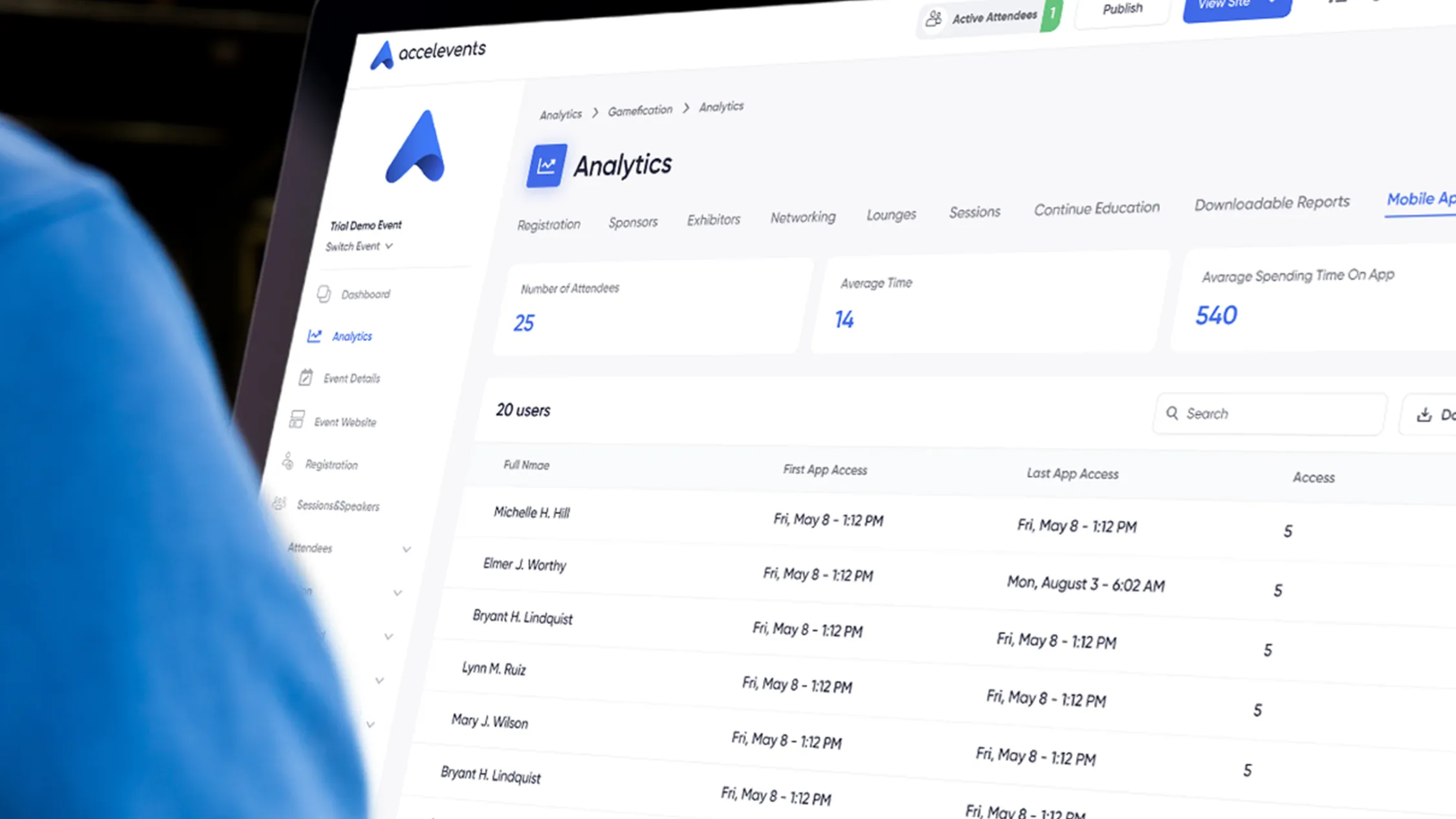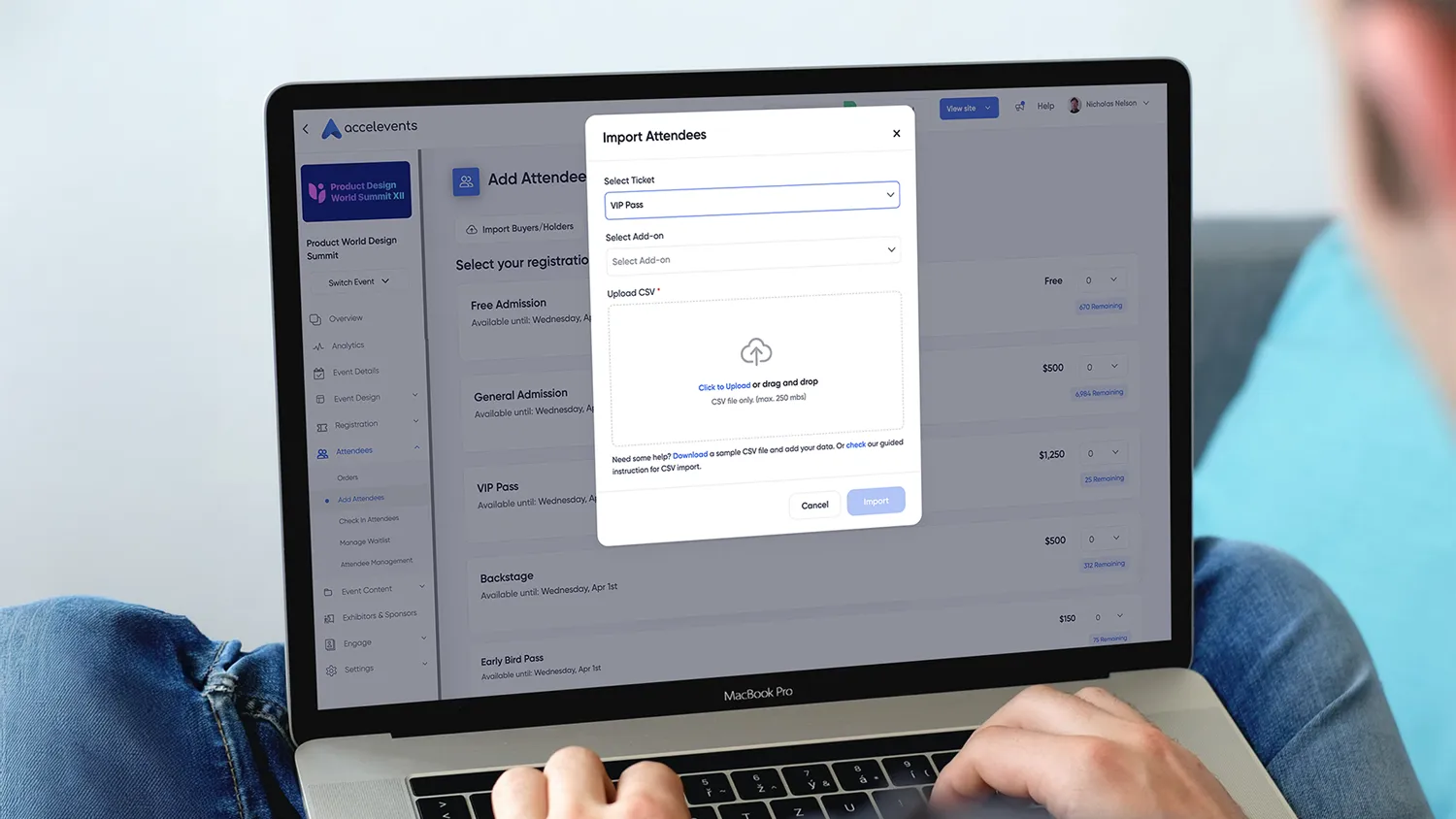Hey, event marketers and planners! Q4 is upon us, and if you think the year's almost over, think again. This is your golden quarter, the perfect time to turn your event data into a treasure trove of customer expansion opportunities. Forget the naysayers who claim that marketing can't drive revenue in the last stretch of the year. They're missing out, and after reading this, you won't be. Ready to shine? Let's dive in!


The Goldmine in Your Event Data
We often focus on acquiring new customers, but what about the ones we already have? Your existing customer base is a goldmine for upselling and cross-selling, and your event data is the map that leads you to this treasure. But how do you navigate this map effectively?

Where to Analyze Your Event Data: Event Platform vs. CRM
The first question to tackle is where to analyze your event data. You have two primary options: your event platform and your CRM.
Event Platform: This is where you'll find real-time metrics, session check-in data, and responses to polls and surveys. These data points are invaluable for understanding customer interests and behavior during the event itself.
CRM: Your Customer Relationship Management system offers a more holistic view. It integrates event data with other customer interactions, providing a 360-degree view of customer behavior over time.
The ideal strategy? Event platforms like Accelevents integrate your event platform with your CRM. This way, you get the best of both worlds: real-time insights and long-term customer behavior trends.

Must-Have Features for Your Event Platform
To effectively use your event data for customer expansion, your event platform should offer certain key features:
- Session Check-In Data: This feature helps you understand which topics or products interest your existing customers. For example, if a customer who uses Product A consistently attends sessions about Product B, that's a clear upsell opportunity.
- Polls and Surveys: These tools can be used before, during, and after the event to gauge customer satisfaction, understand their pain points, and identify what additional products or features they might be interested in.
- Reporting and Analytics: Your platform should offer robust analytics tools that allow you to slice and dice the data in various ways. This enables you to identify trends, measure the effectiveness of your upsell and cross-sell campaigns, and more.


The Step-by-Step Guide to Using Event Data for Customer Expansion
You'll need to follow a structured approach to turns your event data into actionable insights. Here's how:
Step 1: Download Session Attendance from All of Your Events
Your first move is to gather all the raw data. Download the session attendance records from your event platform. This will give you a comprehensive list of who attended what, serving as the base layer of your data analysis.
Step 2: Categorize Those Sessions by the Products You Offer
Now that you have the attendance data, it's time to organize it. Categorize each session based on the product or service it was associated with. This step will help you align customer interests with your product offerings, setting the stage for targeted upselling and cross-selling.
Step 3: Cross-Tab Session Attendance with the Products Each Customer Already Uses
This is where your CRM comes into play. Import the categorized session data into your CRM and cross-tabulate it with the products your customers are already using. This will give you a matrix that shows you not just who attended what, but also what they might be interested in beyond their current product usage.
Step 4: Identify Interest in Products Existing Customers Are NOT Already Using
You've got your matrix, and now it's time for some detective work. Look for patterns where existing customers attended sessions about products they don't currently use. These are your golden upsell and cross-sell opportunities.
Step 5: Start Educating Those Customers on the Products They’ve Shown Interest In
You've identified the opportunities; now it's time to seize them. Create targeted marketing campaigns to educate these customers about the products they showed interest in. Whether it's through personalized emails, in-app messaging, or even direct sales outreach, the goal is to turn that interest into revenue.
By following these five steps, you're not just shooting in the dark; you're making data-driven decisions that are likely to result in customer expansion and increased revenue. So why wait? Start digging into that goldmine of event data now!


Conclusion: The Power of Event Data in Customer Expansion
Events are not just about customer acquisition; they're a powerful tool for customer retention and expansion. By effectively leveraging your event data, you can identify upsell and cross-sell opportunities, create targeted campaigns, and drive significant revenue growth from your existing customer base.
So, are you ready to make the most of your event data? Book a demo with Accelevents today and discover how our platform can provide you with the insights you need to drive customer expansion. Because in the world of events, the opportunity doesn't end when the event does; in fact, it's just the beginning.








